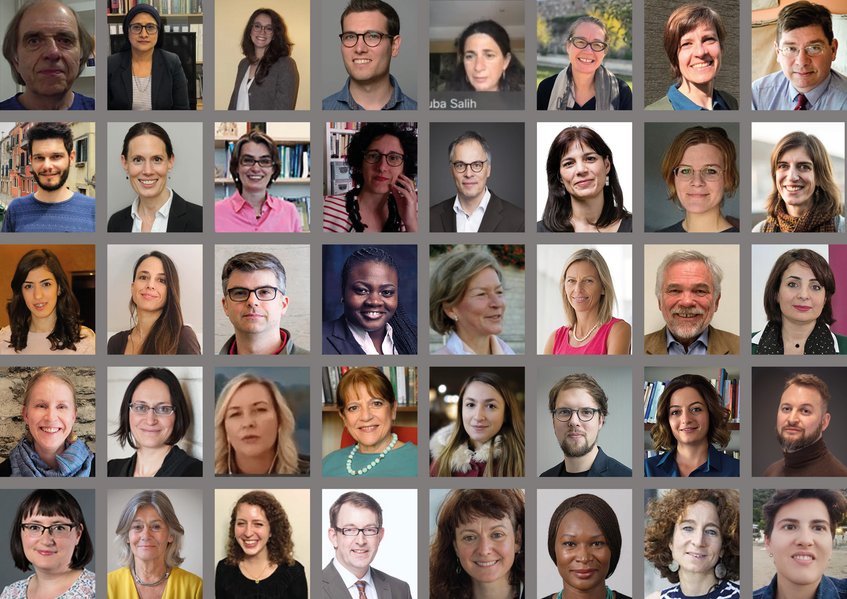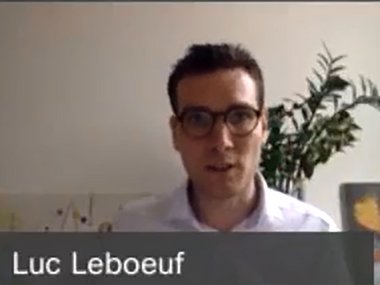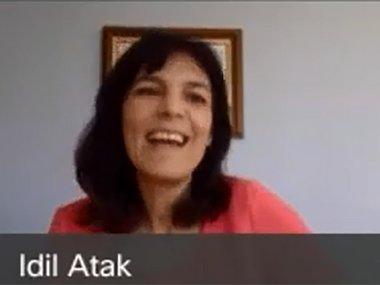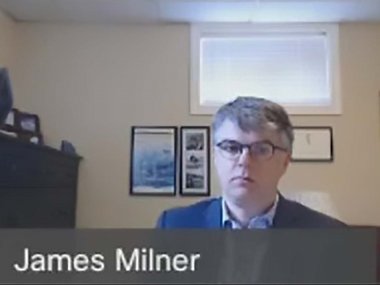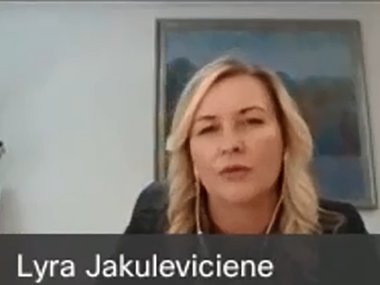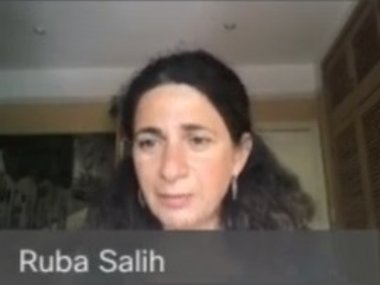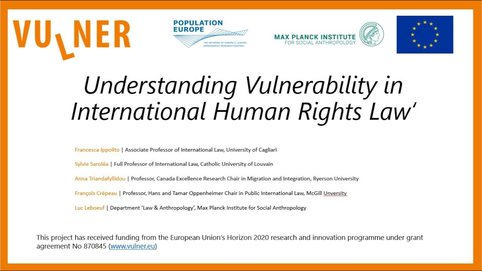VULNER Mid-Term Workshop
On May 27-28, 2021 a mid-term workshop was organized online by the Max Planck Institute for Social Anthropology to discuss the drafts of the first VULNER research reports thanks to the extensive and detailed feedback from the VULNER advisory board members, and to discuss salient issues in view of the next research phases.
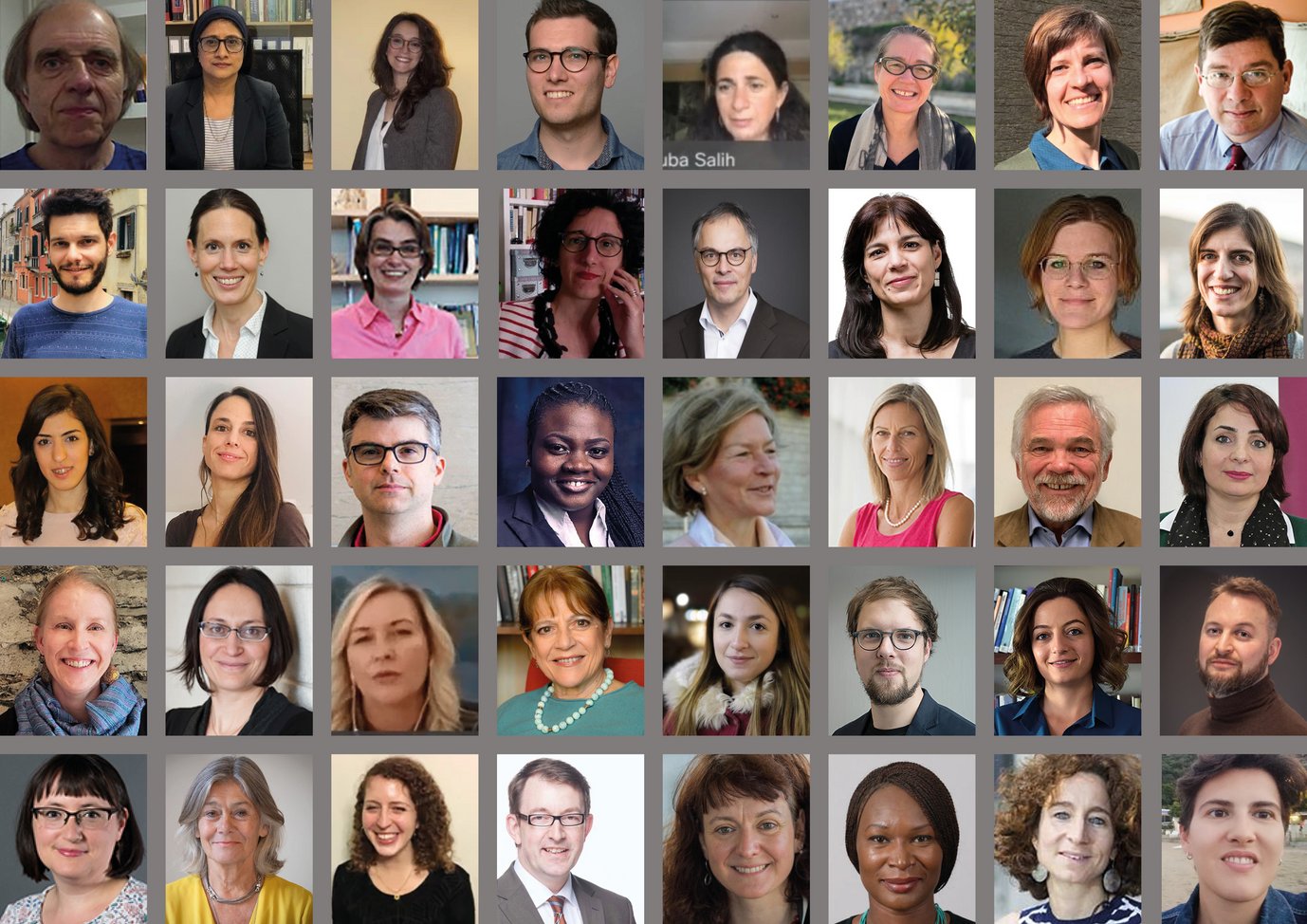
Discussing the Drafts of the First VULNER Research Reports
The VULNER teams presented the drafts of their first VULNER reports, which present the intermediate research results based on a systematic mapping and analysis of existing bureaucratic processes, tools and practices in each of the countries under study in Europe (Belgium, Germany, Italy, and Norway), Africa (Uganda), the Middle East (Lebanon) and North America (Canada).
Each draft was discussed by at least one of the VULNER advisory board members, whose detailed and extensive feedback launched broader discussions and exchanges. The VULNER advisory board members include experts from academia, the civil society and national human rights monitoring bodies.
The final version of the first VULNER research reports, which integrate the feedback of the VULNER advisory board members, can be found here.
Exchanging on Relevant Legislative and Policy Developments at EU Level
Lyra Jakuleviciene (Mikolas Romeris University of Vilnius) shared her critical analysis of the EU Commission proposal to establish a common border screening procedure, which includes a systematic vulnerability assessment mechanism. The proposal is part of the 2020 EU New Pact on Migration and Asylum, which sets the legislative agenda of the EU Commission in the field.
In her talk, Lyra Jakuleviciene argued that the planned vulnerability assessment merely enshrines pre-existing bureaucratic practices into EU law. She also warned against developing the border screening procedure in a way that downplays existing procedural standards as established under refugee and human rights law, which must be respected irrespective of the specific vulnerabilities that some refugees and asylum seekers may be confronted to.
Exchanging on Ethical Issues Related to Ethnographic Fieldwork Among Vulnerable Populations
Ruba Salih (School of Oriental and African Studies (SOAS), University of London) discussed the ethical issues related to the conduct of ethnographic fieldwork among vulnerable migrant populations.
In her talk, Ruba Salih warned against developing a research stance that would neglect migrants’ agency as political actors. She argued that migrants are not the mere subjects of humanitarian policies, but that they also seize and mobilise humanitarian concepts, such as ‘vulnerability’, to resist oppression and achieve resilience. She also questioned the accountability of researchers towards the communities they are studying, calling for the development of policy-relevant research that re-humanises migrants.
A report by Anthony Good (University of Edinburgh), VULNER's independent ethics adivsor, was discussed.
Exchanging Tips to Improve the Communication of Research Results Towards Policymakers
Andreas Edel, Executive Secretary of Population Europe, an agency in charge of disseminating scientific research results to stakeholders beyond academia, addressed the challenges of communicating with policymakers.
Noting that the COVID pandemic accelerates the trend among policymakers to have greater recourse to scientific expertise, Andreas Edel shared practical tips on how to develop a fruitful dialogue between scientific and policymaking spheres. He warned against active lobbying in favor of a specific political choice, and he advised researchers to acknowledge the uncertainties and ambiguities that are inherent in scientific research.
A policy brief has also been issued on the topic. It can be consulted here.
A Webinar on ‘Vulnerability’ as a Standard of International Human Rights Law
As part of the VULNER mid-term workshop, a public webinar was organized with the view of discussing the functions of ‘vulnerability’ in legal reasoning under international human rights law.
Francesca Ippolito (University of Cagliari) presented her study of the use of ‘vulnerability’ by the European Court of Human Rights and UN human rights monitoring bodies (Understanding Vulnerability in International Human Rights Law, Napoli, Editoriale Scientifica, 2020). She showed how ‘vulnerability’ increasingly serves as an interpretative tool to guide the individual assessments specific to each case, in a way that accounts for social positions of weakness.
Francesca Ippolito’s talk was followed by the interventions from Sylvie Sarolea (University of Louvain) and from Anna Triandafyllidou (Ryerson University). Both opened the debate on how to establish adequate procedural guarantees that would enable vulnerable asylum seekers to communicate their specific needs, and on the limitations of strictly defined legal and bureaucratic categories of vulnerability when it comes to assessing actual protection needs – asking whether another concept, such as ‘precarity’, would not be more suited to depict the actual life challenges faced by migrants.
The discussions were moderated by François Crépeau (McGill University).
Understanding Vulnerability in International Human Rights Law
https://www.youtube.com/watch?v=EWA1QpoJyLMClosing the Event with the Viewing of a Documentary
To close the discussions, the online viewing of a documentary entitled ‘Here we are. A portrait of a youth in deadlock’ was organised. The documentary was produced by the Centre for Lebanese Studies. It gives the floor to young Lebanese, who testify on their hopes and dreams, and shows the difficulties they face in finding their place in a society confronted withmajor socio-economic challenges.
The viewing of the documentary was followed with a discussion with its directors, Ali Atassi and Joude Gourani. The discussions were introduced by Raluca Bejan (Dalhousie University). In her talk, she argued that documentaries can serve as a medium to communicate research findings to broader audiences, and as an alternate means to collect data through the active involvement of the research participants.
